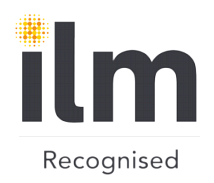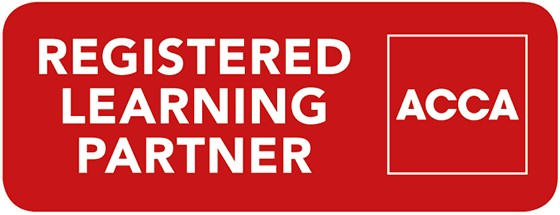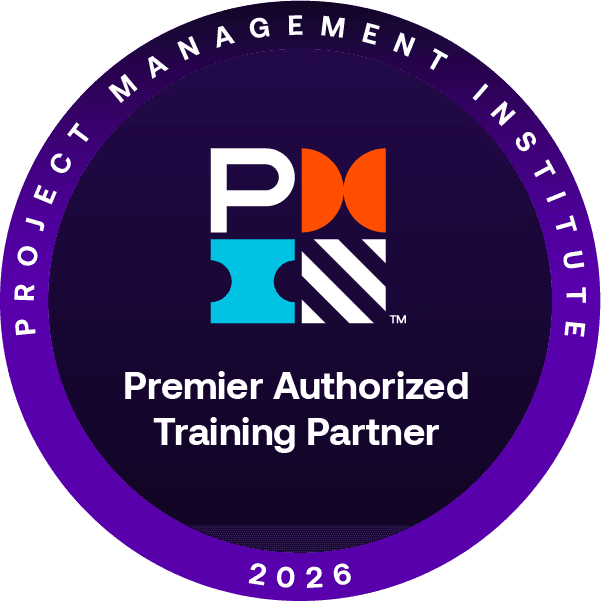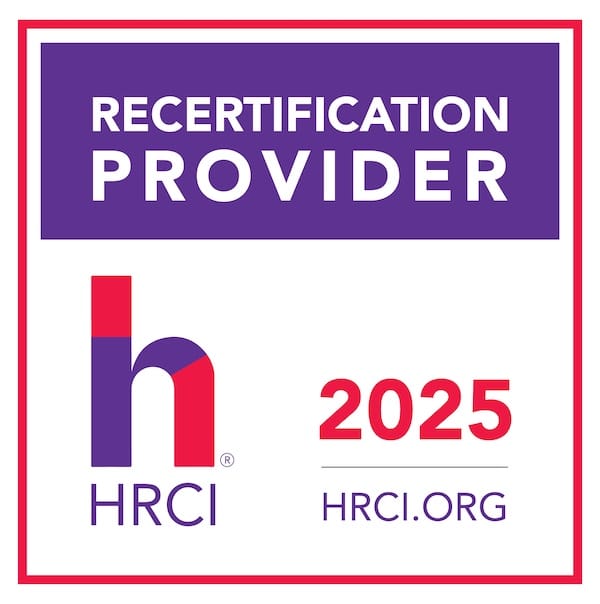Certified Innovation Leader (CIL)
Drive Business Growth by Mastering the Art of Innovation Leadership
INTRODUCTION:
Innovation stands as a pivotal driver of organizational success and sustained competitive advantage. The "Certified Innovation Leader" (CIL) course is meticulously crafted to empower professionals with the essential skills and knowledge to spearhead and manage innovation initiatives effectively within their organizations. This comprehensive program delves into the entire product lifecycle—from ideation to market launch—equipping participants with the tools to foster a culture of innovation, align strategic objectives, and navigate the complexities of bringing new products and services to fruition.
Throughout the course, participants will engage with a blend of theoretical frameworks and practical applications, including interactive workshops and real-world case studies. This approach ensures that attendees not only grasp the fundamental concepts of innovation leadership but also acquire hands-on experience in applying best practices and leveraging cutting-edge tools to drive process excellence. Whether you are a seasoned manager aiming to refine your skills or an emerging leader aspiring to spearhead innovation initiatives, the CIL course offers valuable insights and methodologies to elevate your organization's operational efficiency and effectiveness.
Core Competencies Developed:
- Strategic Innovation Alignment: Ability to align innovation efforts with organizational goals.
- Ideation Management: Proficiency in generating and managing innovative ideas effectively.
- Business Case Development: Skill in evaluating and justifying new product concepts.
- Project Planning and Execution: Expertise in planning and managing innovation projects.
- Change Management Leadership: Capability to lead and manage organizational change initiatives successfully.
- Data-Driven Decision Making: Competence in utilizing data analytics for informed process decisions.
- Technological Integration Acumen: Understanding of integrating BPM tools and automation technologies.
- Performance Measurement Mastery: Ability to establish and monitor key performance indicators (KPIs).
- Stakeholder Engagement Skills: Proficiency in communicating and collaborating with diverse stakeholders.
- Innovation and Adaptability: Capacity to foster a culture of innovation and adapt to changing environments.
COURSE OBJECTIVES:
- Develop comprehensive understanding of business process management principles.
- Master techniques for modeling and analyzing business processes effectively.
- Identify and eliminate inefficiencies to enhance process performance.
- Implement continuous improvement methodologies like Lean and Six Sigma.
- Utilize data-driven decision-making for process optimization initiatives.
- Apply change management strategies to ensure successful process transformations.
- Align process improvement efforts with overarching organizational goals.
- Foster a culture of innovation and continuous improvement organization-wide.
- Leverage technology to automate and streamline business processes.
- Measure and monitor process performance using key performance indicators.
COURSE CONTENT:
Unit 1: Fundamentals of Business Process Management
- Understanding core concepts and significance of BPM.
- Differentiating between various process management approaches.
- Exploring the lifecycle of business process management.
- Identifying roles and responsibilities in process management.
- Workshop: Mapping and analyzing existing business processes.
Unit 2: Process Modeling and Analysis Techniques
- Introduction to process modeling languages and tools.
- Creating accurate and comprehensive process maps.
- Techniques for analyzing process efficiency and effectiveness.
- Identifying bottlenecks and areas for improvement.
- Workshop: Hands-on practice with process modeling software.
Unit 3: Continuous Improvement Methodologies
- Principles of Lean thinking and waste reduction.
- Six Sigma methodologies for quality improvement.
- Integrating Lean and Six Sigma for process excellence.
- Tools for root cause analysis and problem-solving.
- Workshop: Applying continuous improvement tools to case studies.
Unit 4: Change Management in Process Improvement
- Understanding the human element in process change.
- Strategies for effective communication and stakeholder engagement.
- Overcoming resistance and fostering acceptance.
- Sustaining improvements through organizational culture.
- Workshop: Developing a change management plan for process initiatives.
Unit 5: Technology and Automation in BPM
- Role of information systems in process management.
- Exploring Business Process Management Systems (BPMS).
- Opportunities and challenges in process automation.
- Evaluating and selecting appropriate BPM tools.
- Workshop: Designing automated workflows using BPMS platforms.
Unit 6: Measuring and Monitoring Process Performance
- Establishing key performance indicators (KPIs) for processes.
- Techniques for data collection and analysis.
- Utilizing dashboards and reporting tools for monitoring.
- Continuous feedback loops for ongoing improvement.
- Workshop: Creating a performance measurement system for a business process
الأسئلة الشائعة (FAQs):
هذا البرنامج التدريبي هامٌ لك لأنه مصمّم خصيصًا لمساعدتك على تحقيق أهدافك المهنية وتلبية احتياجاتك العملية بشكل فعّال ومستدام. من خلال مشاركتك في البرنامج، ستتمكن من:
- تطوير مهاراتك ومعارفك التخصصية التي تعزّز من أدائك المهني وتزيد من قدرتك على مواجهة التحديات في بيئة العمل.
- الحصول على أدوات وتقنيات حديثة تساعدك في تحسين كفاءتك، وتعزز من فرص تقدمك المهني والشخصي.
- توسيع آفاقك المهنية، من خلال اكتساب خبرات جديدة وأساليب عمل مبتكرة تواكب المتغيرات العالمية وأحدث الممارسات في المجال.
- تعزيز قدراتك القيادية والتنافسية في مجالك، مما يسهم في فتح آفاق وفرص وظيفية متميزة.
- تطبيق المهارات المكتسبة بشكل عملي ومباشر في بيئة عملك، مما يحقق نتائج ملموسة تنعكس إيجابيًا عليك وعلى مؤسستك.
لذا فإن مشاركتك في هذا البرنامج تمثل استثمارًا حقيقيًا في مستقبلك المهني، وتساعدك على تحقيق نجاحات مهنية ملموسة ومستدام
تتم عملية اختيار المدربين والمستشارين ة في يوروماتيك | EuroMaTech وفق مجموعة من المعايير العلمية والمهنية الدقيقة، من أبرزها:
- المؤهلات العلمية والخبرات المهنية: نحرص على اختيار مدربين ومستشارين ذوي مؤهلات أكاديمية متخصصة وخبرات مهنية موثّقة في مجالات اختصاصهم.
- الكفاءة والمهارات التدريبية: نقيّم قدرة المدرب أو المستشار على توصيل المعرفة والمهارات بشكل فعّال ومهني، مع استخدام أساليب تدريبية تفاعلية ومتطورة.
- السجل المهني والسمعة: نولي اهتمامًا خاصًا لسجل الأداء السابق والتقييمات المهنية والشهادات المرجعية لضمان الجودة والمصداقية.
- الاعتمادات والشهادات المهنية: يُفضل اختيار المدربين والمستشارين الحاصلين على شهادات مهنية معتمدة دوليًا لتعزيز الموثوقية وجودة الأداء.
- القدرة على التفاعل والتواصل: يُشترط توفر مهارات تواصل عالية، والقدرة على التفاعل مع المتدربين وتقديم الدعم والتوجيه بشكل مستمر طوال البرنامج التدريبي.
- التقييمات ورضا العملاء: مراجعة وتقييم سجل الأداء السابق، بما يشمل آراء العملاء وتوصياتهم ومدى رضاهم عن الخدمات التي قُدمت سابقًا.
تضمن هذه المعايير تقديم برامج تدريبية واستشارية تتمتع بأعلى مستويات الجودة والفعالية، وتلبي احتياجات المشاركين والمؤسسات على حدٍ سواء.
نلتزم في ة في يوروماتيك | EuroMaTech تقديم برامجنا التدريبية بأعلى معايير الجودة والتميّز، والتي تشمل:
- تصميم البرامج وفق معايير عالمية: اعتماد أفضل الممارسات الدولية في تصميم وتطوير المحتوى التدريبي.
- المدربون ذوو الكفاءة العالية: اختيار مدربين وخبراء معتمدين يتمتعون بخبرات ومؤهلات مهنية متميزة في تخصصاتهم.
- محتوى تدريبي محدّث ومستمر: التحديث الدوري للمحتوى التدريبي وفق أحدث التطورات العلمية والمهنية.
- التفاعل والتطبيق العملي: استخدام منهجيات تدريب تفاعلية وتطبيقية تضمن تعزيز المهارات العملية وإمكانية نقلها إلى بيئة العمل.
- تقييم ومتابعة مستمرة: اعتماد نظم تقييم متعددة المستويات لقياس فعالية التدريب، وتحليل نتائج التقييم بهدف التحسين المستمر.
- تجربة المشاركين ورضا العملاء: ضمان تجربة تدريبية متميزة تلبي توقعات المشاركين، مع أخذ آرائهم وتوصياتهم كمدخل أساسي في تحسين الجودة.
- اعتمادات دولية ومهنية: التعاون مع الجهات الدولية للحصول على اعتمادات مهنية، مما يعزز مصداقية البرامج المقدمة وقيمتها المهنية.
تضمن هذه المعايير تحقيق مستوى عالٍ من الجودة والفعالية في جميع برامجنا التدريبية، بما يدعم أهداف المشاركين ويعزز الأداء المؤسسي.
نعتمد تنفيذ برامجنا التدريبية في يوروماتيك | EuroMaTech على منهجيات حديثة ومتنوعة تستند إلى أفضل الممارسات العالمية في مجال التدريب والتطوير، والتي تشمل:
- التعلم التفاعلي (Interactive Learning): حيث يُشارك المتدرب بشكل نشط في النقاشات والأنشطة الجماعية، لتعزيز تبادل الخبرات وزيادة التفاعل.
- التعلم التطبيقي (Experiential Learning): باستخدام دراسات الحالة (Case Studies)، والمحاكاة (Simulations)، وورش العمل التطبيقية (Workshops) لتطبيق المهارات والمعارف عمليًا.
- التدريب المدمج (Blended Learning): والذي يدمج بين التدريب الحضوري والتدريب الإلكتروني لتحقيق المرونة ورفع كفاءة التعلم.
- التوجيه والإرشاد (Coaching & Mentoring): تقديم الدعم الفردي للمشاركين من خلال جلسات الإرشاد الشخصي لتحقيق التطوير المستمر.
- التعلم التعاوني (Collaborative Learning): تعزيز التعاون من خلال تشكيل فرق عمل صغيرة تناقش وتنفذ مشاريع تدريبية مشتركة لتحقيق أهداف البرنامج.
تم تصميم معظم برامجنا ودوراتنا التدريبية بشكل يتيح المشاركة للجميع دون اشتراط خبرة مسبقة أو مؤهلات محددة. مع ذلك، هناك بعض الدورات التخصصية أو المتقدمة التي تتطلب مستوى معينًا من المعرفة أو الخبرة السابقة لضمان تحقيق أقصى استفادة للمشاركين. في هذه الحالة، يتم توضيح متطلبات وشروط التسجيل بوضوح في وصف الدورة أو البرنامج التدريبي. كما يسعد فريقنا بمساعدتكم في اختيار البرامج الأنسب بما يتوافق مع خبراتكم وأهدافكم المهنية.
يتم قياس أثر وفعالية هذا البرنامج التدريبي، في يوروماتيك | EuroMaTech من خلال استخدام منهجية علمية تتضمن عدة مستويات متدرجة ومعتمدة عالميًا، واتي تشمل أربعة مستويات رئيسية:
- ردة الفعل (Reaction): تقييم مدى رضا المشاركين عن البرنامج التدريبي من خلال استطلاعات الرأي والاستبيانات التي تقيس مستوى القبول ومدى ملاءمة المحتوى وطرق العرض.
- التعلم (Learning): قياس اكتساب المشاركين للمعارف والمهارات الجديدة من خلال اختبارات ما قبل وبعد التدريب (Pre-Post Assessments)، لتحديد مقدار التغير المعرفي والسلوكي لدى المشاركين.
- السلوك (Behavior): رصد وتحليل مدى تطبيق المشاركين للمهارات والمعارف المكتسبة عمليًا في بيئة العمل بعد التدريب، ويستخدم لهذا الغرض الملاحظة المباشرة، والتقييم من قبل المشرفين، واستطلاعات الأداء بعد فترة من انتهاء البرنامج.
ومن خلال استخدام هذه المنهجية متعددة المستويات، يمكن الوصول إلى نتائج دقيقة وموضوعية تضمن التحسين المستمر في تصميم وتنفيذ البرامج التدريبية لتحقيق أقصى فائدة على المستويين الفردي والمؤسسي.
يحصل المشاركون بعد إتمام البرامج والدورات التدريبية المقدمة من ة في يوروماتيك | EuroMaTech بنجاح على شهادة حضور معتمدة من الجهة المنظمة، تتضمن اسم الدورة وعدد الساعات التدريبية التي تم إنجازها. كما تُمنح في بعض البرامج التخصصية شهادات مهنية معتمدة دوليًا من هيئات ومؤسسات مرموقة، وذلك حسب نوع الدورة ومتطلباتها. تكون هذه الشهادات ذات قيمة مهنية عالية، وتدعم المسار الوظيفي للمشاركين وتُعزّز فرصهم المهنية وتنافسيتهم.
يمكنك اختيار الدورة التدريبية الأنسب لأهدافك واحتياجاتك المهنية من خلال اتباع الخطوات التالية:
- تحديد الأهداف المهنية والشخصية: حدّد بوضوح ما ترغب في تحقيقه من مشاركتك في الدورة التدريبية، سواءً تطوير مهارات محددة أو تعزيز المعرفة في مجال معين.
- تقييم المهارات الحالية: قيّم مستوى مهاراتك وخبراتك الحالية، وحدّد المجالات التي ترغب في تحسينها أو تعزيزها بشكل خاص.
- مراجعة محتوى الدورات: اطلع على وصف وأهداف الدورات المتاحة بعناية، وتأكد من توافق المحتوى مع أهدافك المهنية ومتطلبات وظيفتك.
- الاطلاع على متطلبات الدورة: تأكد من توافق مؤهلاتك وخبراتك مع متطلبات التسجيل في الدورة، خاصة في الدورات التخصصية أو المتقدمة.
- الاستشارة والتواصل مع خبرائنا: تواصل مع فريقنا المختص للاستفادة من نصائحهم وإرشاداتهم في اختيار الدورة الأنسب لك، بناءً على أهدافك وتطلعاتك المهنية.
اتباعك لهذه الخطوات سيساعدك في اختيار البرنامج التدريبي او الشهادة المهنية الأفضل الذي يحقق أهدافك ويدعم تقدمك المهني بشكل فعّال.
نعم، نوفّر في يوروماتيك | EuroMaTech للمشاركين مواد تدريبية متكاملة تشمل أدلة التدريب، والعروض التقديمية، والنماذج التطبيقية. يتم تقديم هذه المواد إلكترونيًا على أجهزة محمولة تُمنح للمشاركين، وذلك لسهولة استخدامها والرجوع إليها مستقبلًا في بيئة العمل، مما يضمن الاستفادة المستدامة من المحتوى التدريبي وتعزيز التطبيق العملي للمهارات المكتسبة.
نعم، توفر ة في يوروماتيك | EuroMaTech برامج ودورات تدريبية معتمدة بنظام التدريب الحضوري والتدريب الافتراضي (عن بُعد)، مع ضمان الالتزام بأعلى معايير الجودة التدريبية وتوفير بيئة تفاعلية متكاملة. تتميّز الدورات الافتراضية باستخدام منصات تقنية حديثة وأدوات تفاعلية متطورة لضمان تجربة تدريبية متميزة، تسمح للمشاركين بالتفاعل المباشر مع المدربين والزملاء، وتحقيق أقصى استفادة ممكنة من محتوى البرنامج التدريبي، بصرف النظر عن موقعهم الجغرافي
نعم، نحرص في ة في يوروماتيك | EuroMaTech على تحديث وتطوير محتوى برامجنا ودوراتنا التدريبية، بشكل دوري ومنهجي وفقًا لأحدث المعايير العالمية وأفضل الممارسات المهنية، مع مراعاة المستجدات والتوجهات المستقبلية ذات العلاقة. كما نعتمد في عملية التحديث على التغذية الراجعة من المشاركين والخبراء، بالإضافة إلى متابعة التطورات المعرفية والتقنية في مختلف المجالات، لضمان أن يكون المحتوى المقدّم مواكبًا للتحديات الحالية والمستقبلية، وقادرًا على تلبية المتطلبات المهنية المتغيرة للمشاركين والمؤسسات على حدٍ سواء.
نعم، يمكن تنفيذ هذا البرنامج التدريبي داخل مقر مؤسستكم بنظام التدريب الداخلي (In-House Training)، حيث نوفّر لكم حلولاً تدريبية مخصصة ومرنة، تراعي احتياجات المؤسسة وأهدافها الاستراتيجية، مع إمكانية تكييف المحتوى التدريبي بما يتوافق مع متطلبات بيئة العمل لديكم. ويتميّز التدريب الداخلي بتعزيز التفاعل المباشر مع المدربين، وتحقيق خصوصية وملاءمة عالية، إضافةً إلى توفير الوقت والتكلفة، وتعزيز فرص التطبيق العملي المباشر لمخرجات البرنامج في بيئة العمل الفعلية.
نعم، نوفّر خدمات دعم ومتابعة متكاملة لما بعد التدريب، تشمل تقديم الاستشارات المهنية المتخصصة، وجلسات التوجيه والإرشاد الفردي والجماعي، بالإضافة إلى تقييم دوري لمدى تطبيق المشاركين للمهارات المكتسبة في بيئة العمل. كما نحرص على التواصل المستمر مع المتدربين لتقديم الدعم اللازم وضمان تحقيق أقصى استفادة ممكنة، مما يُسهم في تعزيز فعالية التدريب وتحقيق نتائج مستدامة تلبي الأهداف المهنية للمشاركين ومؤسساتهم.
تُقدَّم برامجنا ودوراتنا التدريبية في عدد من أبرز المدن والعواصم العالمية، في فنادق ومنتجعات فاخرة من فئة الخمس نجوم، توفر بيئة تدريبية راقية ومريحة تحفّز على التعلم والتفاعل الإيجابي، مع تجهيزات حديثة وتقنيات متطورة تضمن تجربة تعليمية فريدة وفعّالة.
كما تتوفر إمكانية تنفيذ البرامج التدريبية داخل مقر مؤسستكم (التدريب الداخلي In-House Training)، أو من خلال منصات التدريب الافتراضي (عن بُعد)، وفقًا لاحتياجات مؤسستكم ومتطلباتكم الخاصة، وبما يتماشى مع أهدافكم المهنية والاستراتيجية
الإعتمادات الدولية:
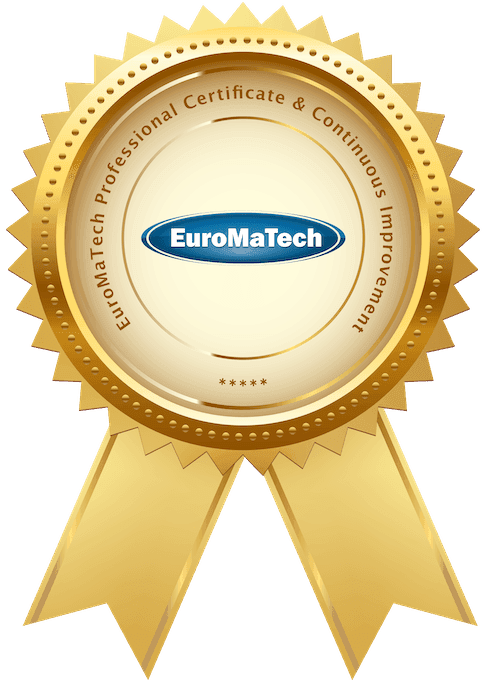
EuroMaTech Accredited Certification (EAC)
تلتزم يوروماتيك للتدريب والاستشارات (EuroMaTech Training & Consultancy) بتوفير برامج تدريبية احترافية معتمدة، صُممت وفق اعلى معايير الجودة ، بهدف تطوير وتعزيز المهارات والكفاءات المهنية والشخصية للمشاركين، بما يلبي متطلبات سوق العمل وتطلعات التميز المؤسسي. وتسعى هذه البرامج إلى تمكين المشاركين من تعزيز قدراتهم العملية، ورفع مستوى أدائهم الوظيفي، وإكسابهم الخبرات المتقدمة التي تؤهلهم لمواجهة التحديات المهنية بكفاءة وفاعلية. وعند استيفاء متطلبات الحضور الكامل واجتياز الاختبار النهائي بنجاح، يحصل المشاركون على شهادة معتمدة من يوروماتيك، تتمتع بالاعتراف والموثوقية إقليميًا ودوليًا، مما يمنحها قيمة استراتيجية عالية. وتُشكل هذه الشهادة إضافة نوعية لمسار التطوير المهني، وتفتح للمشاركين آفاقًا واسعة نحو الترقي الوظيفي وتحقيق التفوق والتميز داخل مؤسساتهم وخارجها.
كافة الحقوق محفوظة لشركة يوروماتيك للتدريب والإستشارات الإدارية © 2024
Copyright © 2024 EuroMaTech Training & Consultancy. All rights reserved
هذا الموقع محمي بحقوق التآليف والطبع والنشر وفقًا لقوانين دولة الإمارات العربية المتحدة والقوانين الدولية ذات الصلة.
لا يجوز طبع وإعادة انتاج هذا الموقع او محتوياته أو أي جزء منه أو حفظه آليًا أو نقله بأية وسيلة الكترونية أو غير الكترونية، أي مخالفة لهذه الحقوق ستؤدي إلى المسائلة القانونية.








